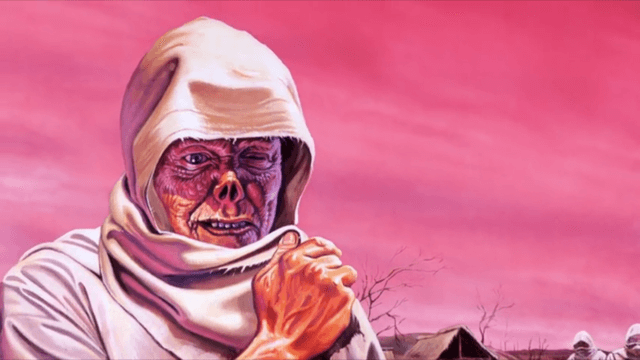Eid Lockdown

Getting your Trinity Audio player ready... |
Question
Is there any guidance upon performing Eid prayer given that the country has been placed in ‘lockdown’?
Answer
- The Eid prayer is a Sunnah, well known and established by the Islamic rules. Under normal circumstances it would be performed in congregation, either in a mosque or often in a large public space, weather permitting. If one were to miss the prayer, such as due to work, oversleeping or any other reasonable excuse, one is not deemed sinful or required to make up that prayer. Further analysis upon the distinction between the obligatory and voluntary prayers can be found here.
- We are not though living in normal times. Presently, Muslims are excused from performing Eid prayers to mark the end of Ramadan upon the grounds of duress. It is understandable that the community has a desire to attend the Eid prayer. It is a joyous occasion marking the end of Ramadan and indeed a cause for celebration.
- Restrictions on religious worship and gatherings have been imposed by the government. They are not though peculiar to Muslims only, rather they extend to other religious communities, applying also to Churches and Synagogues. It is also noteworthy that the compulsory Friday prayers have not been held at all during this period.
Reasoning
- Since the imposition of the draconian ‘lockdown’ on 23 March 2020, all religious services, bar that of funerals, are banned by government regulations. Since that time, mosques have been officially closed to public services, most notably the compulsory Friday prayers (Qur’an, 62: 9), and all services that are normally commonplace in Ramadan, such as the voluntary evening prayers, Tarawih’.
- The British government passed The Coronavirus Act 2020 and The Health Protection (Coronavirus, Restrictions) (England) Regulations 2020 in March this year. There was little or no serious opposition to this in the Houses of Parliament. While originally intended to be in effect for two-years, this was slightly scaled back to 6-months.
- The term ‘lockdown’ has become the commonplace term to describe government actions. Aside from confining the majority of the population to their houses or dwellings under a form of deprivation of liberty, or house arrest, various other restrictions also exist. The current Regulations that are in effect place severe restrictions upon gatherings relating to religious worship or services, a notable exception being for funerals in a limited way. In his legal analysis on the disproportionate effect these restrictions have and the overall incompatibility with the European Convention on Human Rights (ECHR), Mr Francis Hoar of Field Court Chambers outlines a succinct summary as it relates to the matter of religious practice and observance:
The Regulations prevent or severely restrict religious practice, including attending or gathering in places of worship and for services. The very limited exceptions to the restriction on gatherings (under reg. 7) include only weddings and funerals and prevent the gathering of people together in a religious service; places of worship may only be attended for services in the case of funerals; and the list of reasonable excuses for leaving a residence includes ‘in the case of a minister of religion or worship leader, to go to their place of worship’ which, read together with regs 4 and 8, suggests that it would not be a reasonable excuse for any other person to leave their house to gather in church, which would in any event amount to an unlawful gathering.
- Given the penalties that can be imposed for breaching the current Regulations, it can reasonably be argued that Muslims would be excused from attendance at Eid prayers. The same also has been applied to the Friday prayer (Salatul-Jummah), however praying the midday prayer (dhur) is done within one’s house or dwelling while attendance at the mosque is currently outlawed.
- Some families may wish to perform the Eid prayer within their own house or dwelling. They would be at liberty to do so, following the normal rules that relate to how Eid prayer is performed. The other common rituals or Sunnah acts associated with Eid, (ghusl, talbiyah etc) have not been barred or restricted by government regulations and can reasonably be undertaken.
‘Social distancing’
- There has been some confusion regarding the precise nature of this term and whether it is enforceable. It is worth stressing that ‘social distancing’ is government ‘guidance,’ not law. As the College of Policing points out: ‘Some of the public statements that have been made about restrictions are guidance only and non-enforceable under the law, e.g., two-metre distancing. Reference should be made to the Act and the Regulations when deciding what action to take.’ There is though, a distinction between the various constituent nations making up the United Kingdom, with this not being enforceable in England, but enforceable in Wales.
- Totalitarian in nature and without any rational or scientific basis to it, if this notion of distancing takes formal hold it will have serious economic, psychological and behavioural consequences for society. Certain politicians, oligarchs and sections of the mainstream media would indeed like this to be formalised in some sense, often referring to it as the ‘new normal.’ Effectively that may mean the end to all forms congregational religious worship, not only within mosques.
قُلْ أَمَرَ رَبِّي بِالْقِسْطِ وَأَقِيمُوا وُجُوهَكُمْ عِندَ كُلِّ مَسْجِدٍ وَادْعُوهُ مُخْلِصِينَ لَهُ الدِّينَ كَمَا بَدَأَكُمْ تَعُودُونَ
Say: My Lord commands justice. Direct your worship straight to Him wherever you pray; call on Him; devote your religion entirely to Him. Just as He first created you, so you will come back [to life] again. [7: 29]




